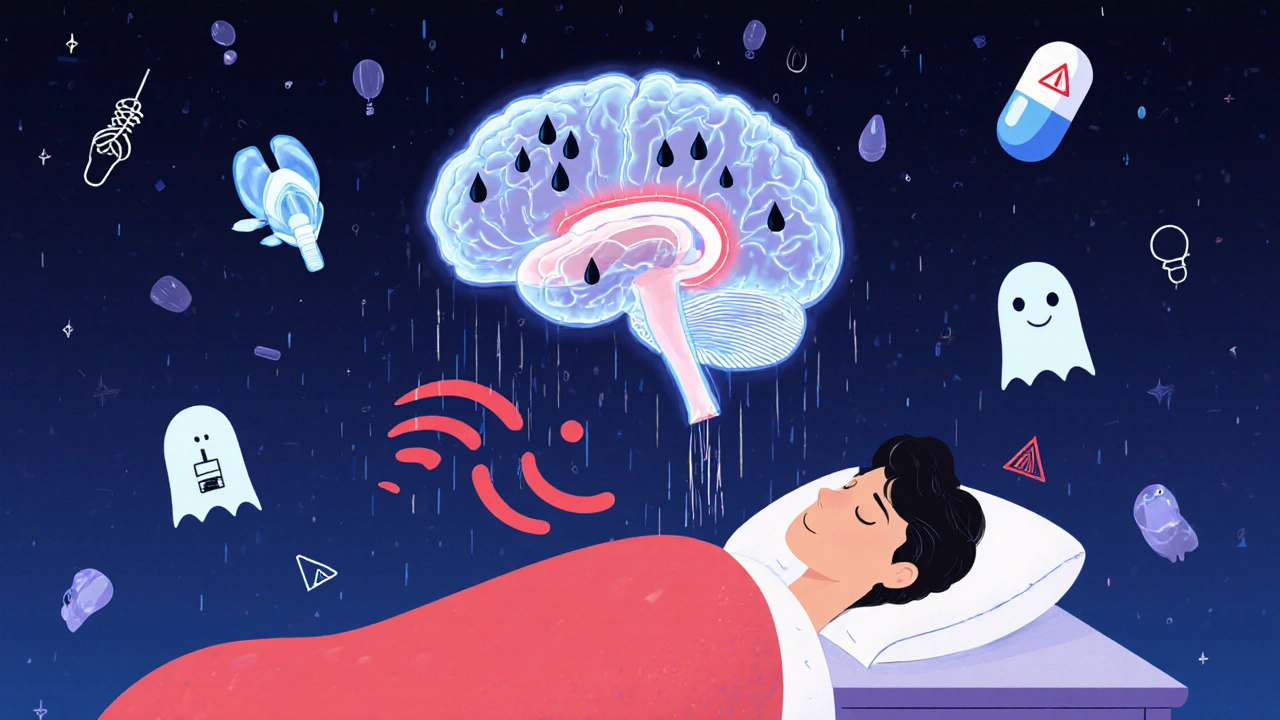Nighttime Hypoxia: What It Is, Why It Matters, and How Medications Play a Role
When you sleep, your body should rest—your breathing should stay steady, your oxygen levels should stay normal. But for many, nighttime hypoxia, a drop in blood oxygen levels during sleep. Also known as nocturnal hypoxemia, it’s not just a side effect of aging—it’s a red flag that something’s wrong with how your body handles breathing while unconscious. This isn’t rare. Studies show over 30% of adults over 65 experience it, and it’s even more common in people with heart or lung conditions. If you wake up gasping, feel exhausted even after 8 hours, or your partner says you stop breathing at night, you’re not just tired—you might be dealing with nighttime hypoxia.
This condition doesn’t happen in a vacuum. It often links to sleep apnea, a disorder where breathing repeatedly stops and starts during sleep, which is the most common cause. But it’s also worsened by certain medications, especially those that slow breathing or relax airway muscles. Think opioids, benzodiazepines, muscle relaxants, even some sleep aids. These drugs don’t cause hypoxia on their own—but when your airway is already narrow from sleep apnea, they can push you into dangerous territory. That’s why combining gabapentin with opioids is so risky, or why alcohol with sedatives can turn a quiet night into a medical emergency.
It’s not just about breathing. Low oxygen at night strains your heart, spikes blood pressure, and can make diabetes harder to control. It’s linked to memory problems, mood disorders, and even higher risk of stroke. And here’s the catch: most people don’t know they have it. Routine checkups rarely check oxygen levels while you sleep. If you’re on long-term medication for pain, anxiety, or insomnia, and you feel worse in the morning than when you went to bed, it’s time to ask: could this be nighttime hypoxia?
The posts below cover real cases and connections you won’t find in generic health sites. You’ll see how certain drugs like opioids and gabapentinoids can deepen respiratory depression during sleep, why checking active ingredients in sleep aids matters, and how even common medications can quietly lower your oxygen levels. We’ll also show you what to ask your doctor, how to recognize early signs, and what steps to take before it turns into something serious. This isn’t theory—it’s what people are experiencing, and what you need to know to protect yourself.
Sleep Apnea and Opioids: How Pain Medications Increase Nighttime Oxygen Drops
Opioids can severely disrupt breathing during sleep, causing dangerous drops in oxygen levels. Learn how pain medications increase the risk of nighttime hypoxia and what steps you can take to protect yourself.
More
